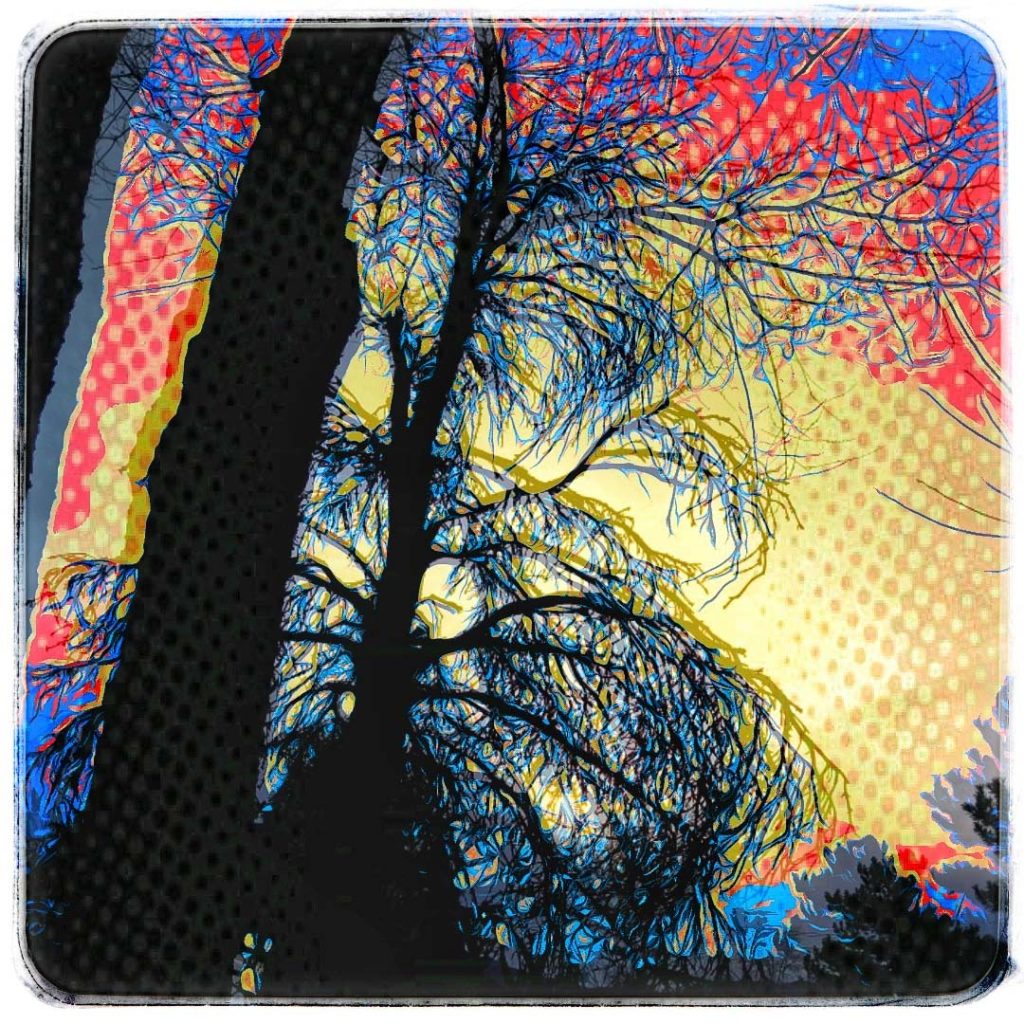
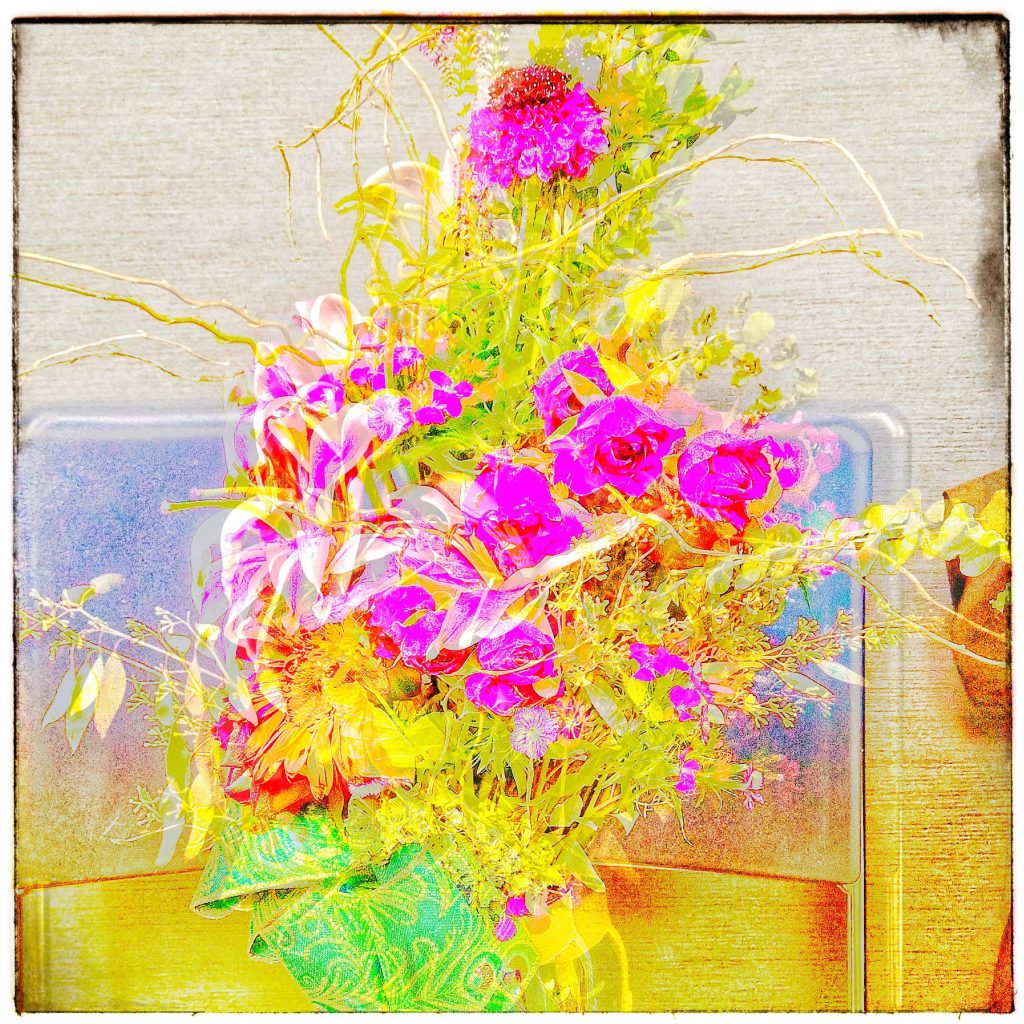
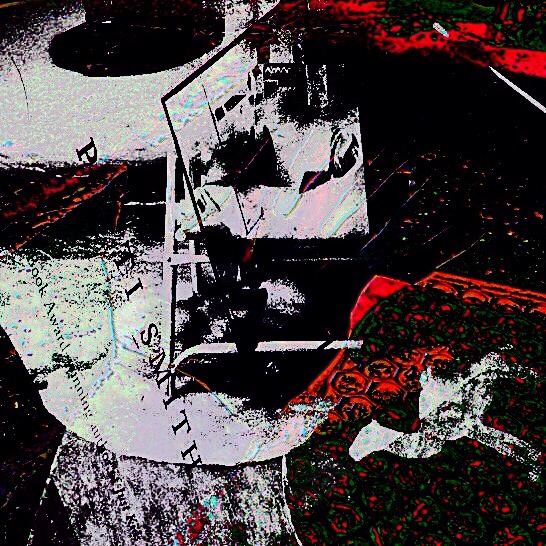
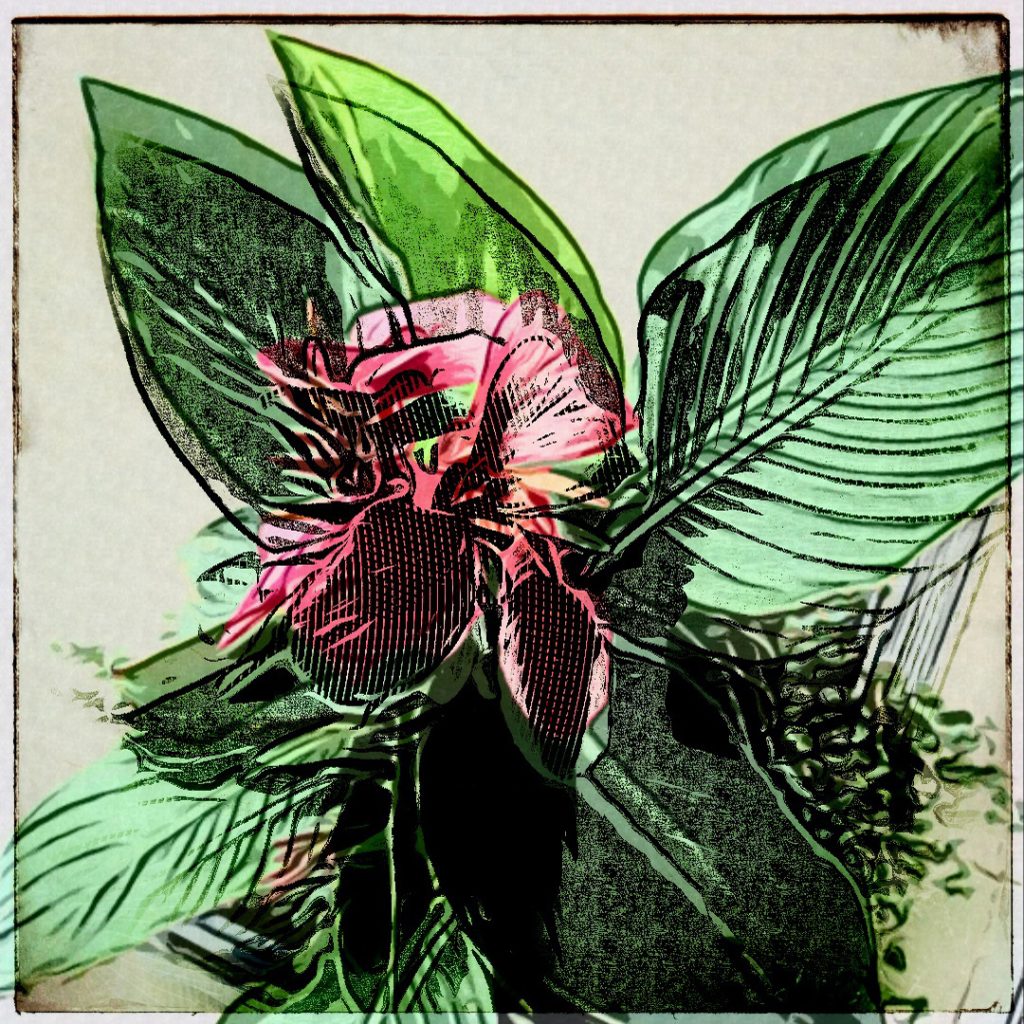
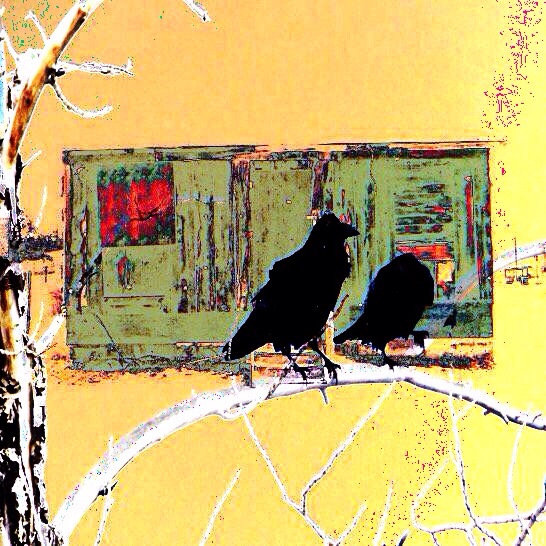
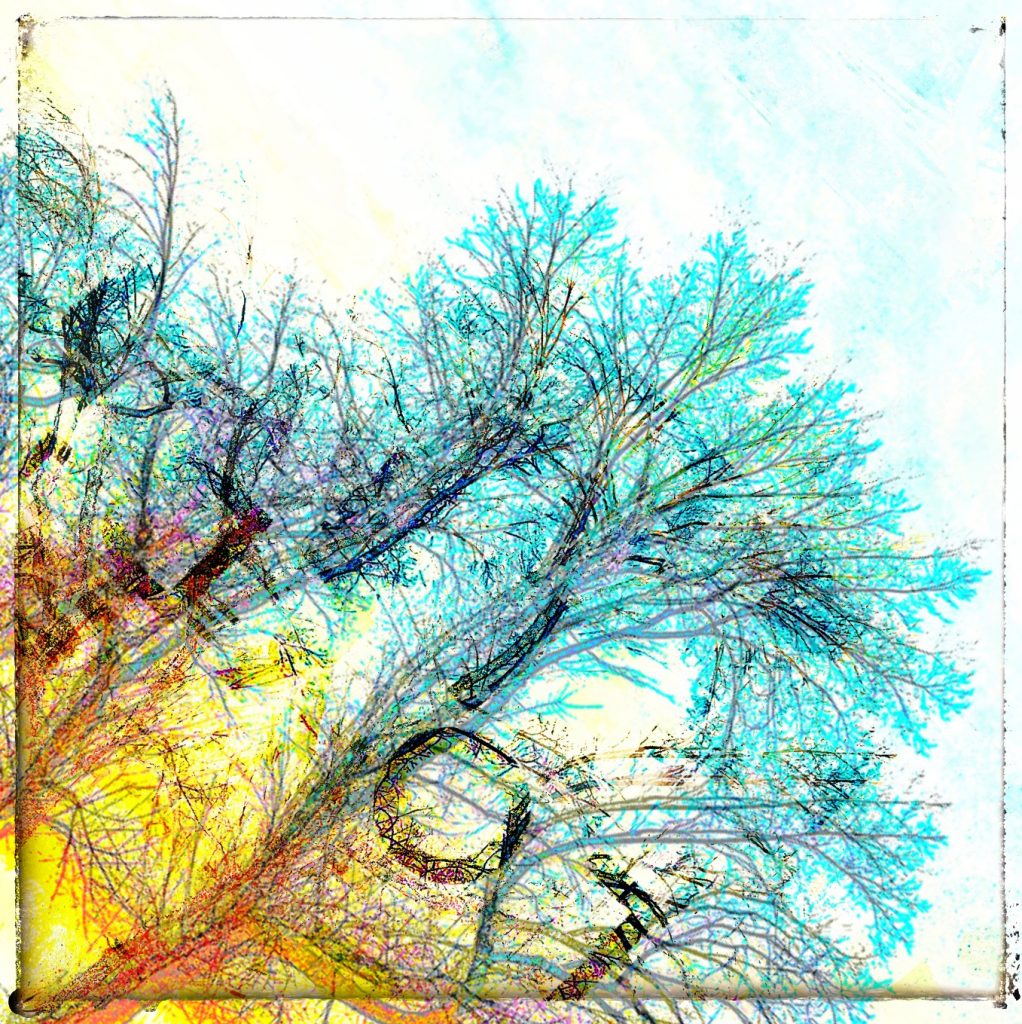
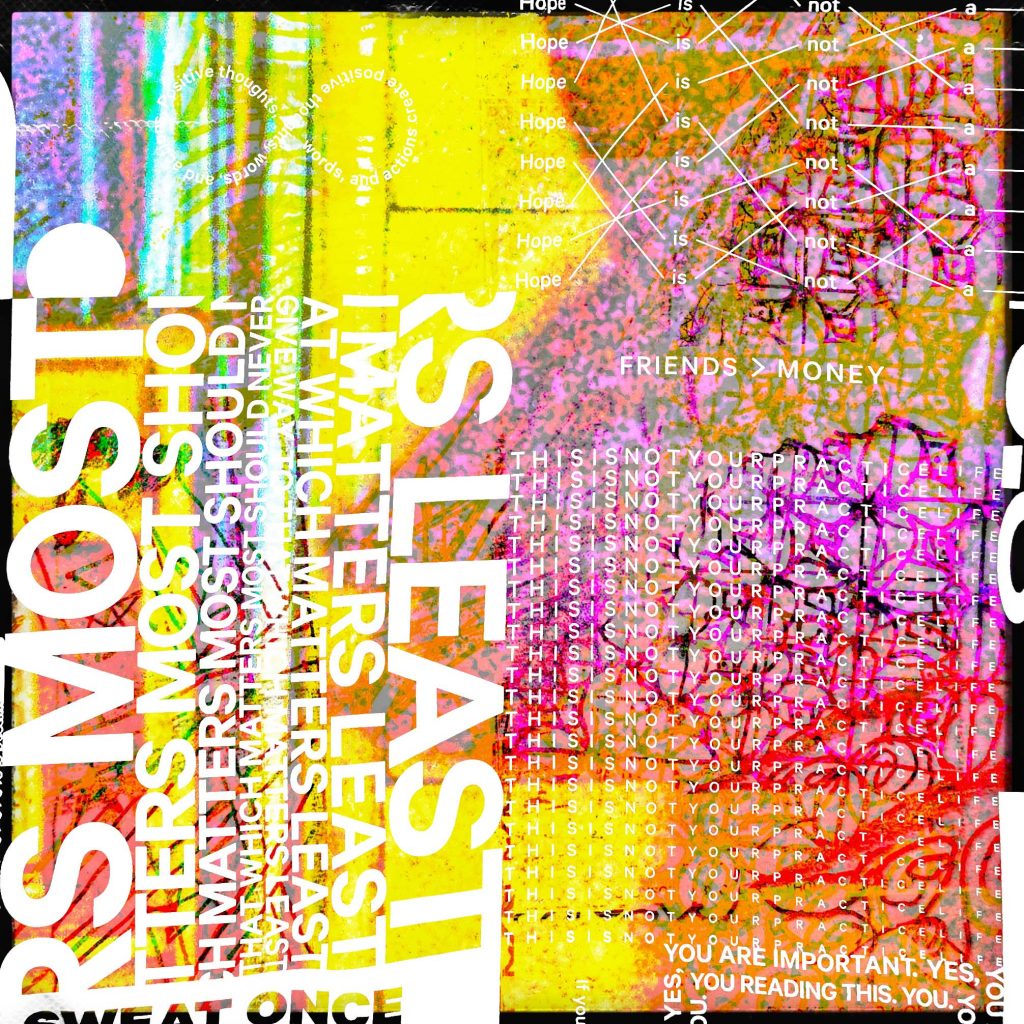
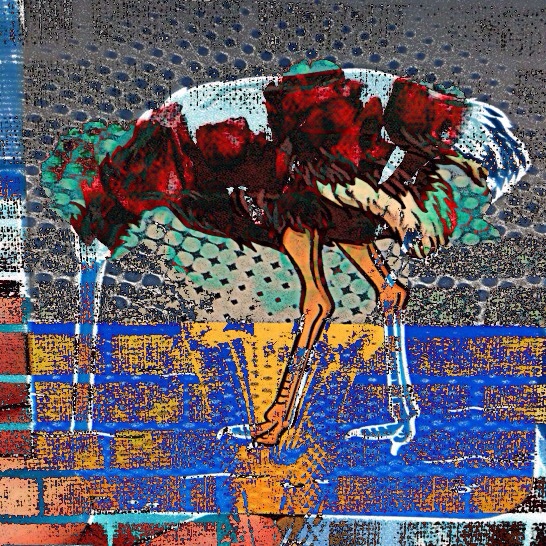
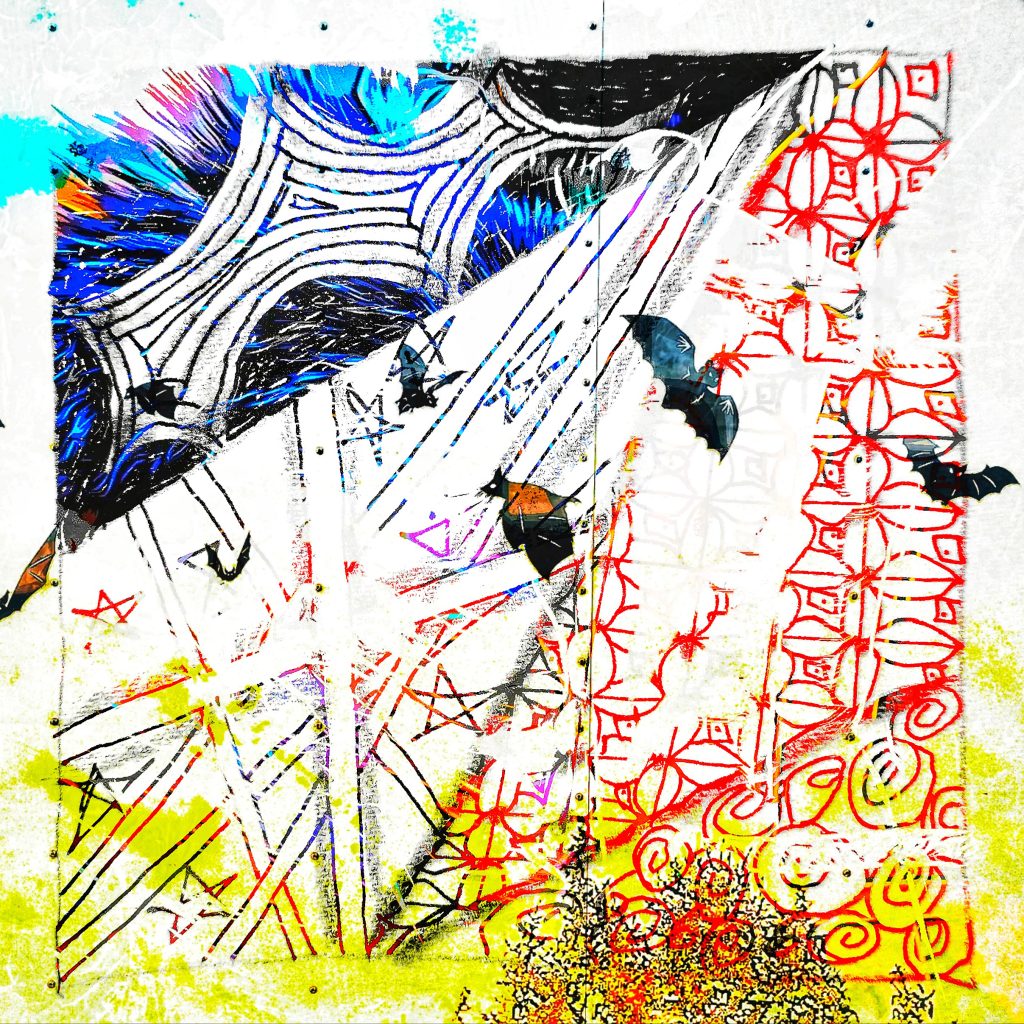
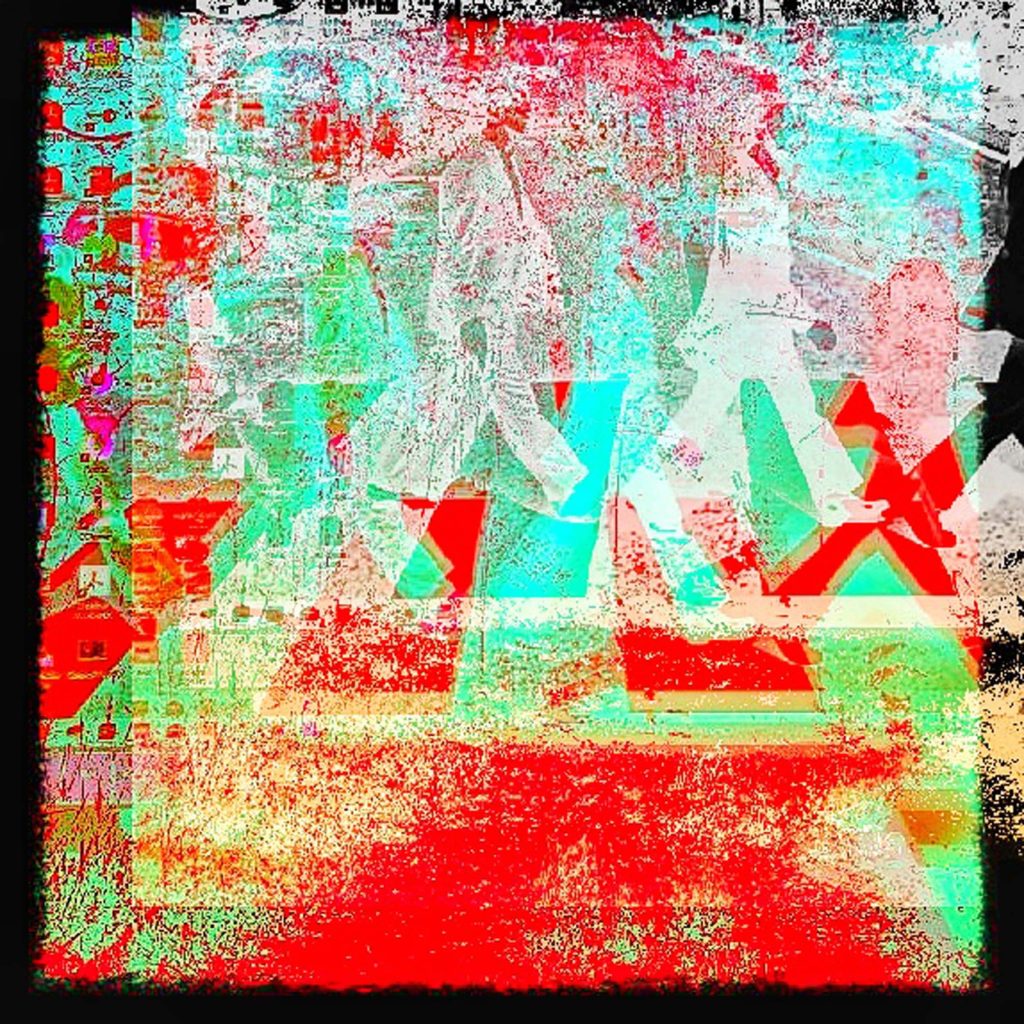
Bio: Jeffrey Spahr-Summers is a poet, writer, photographer, editor, and publisher. Jeff is the editor and publisher of Jasper’s Folly Poetry Journal. His photos and poems have been published in numerous print and online magazines.

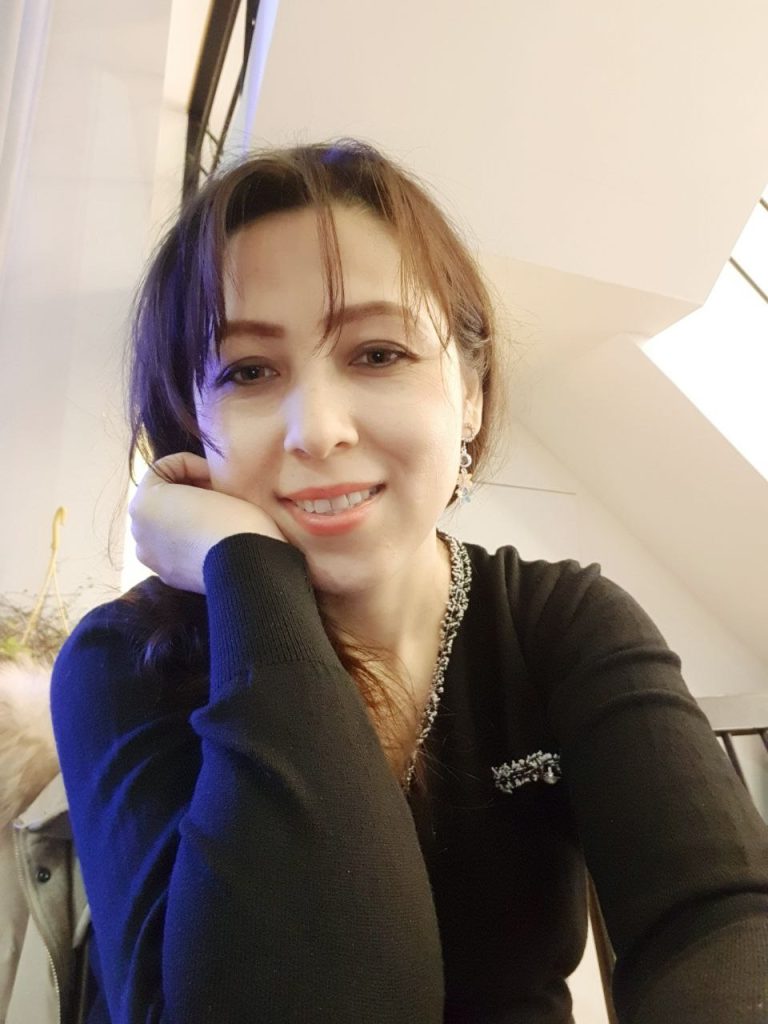
Rakhshona Akhmedova
FORGIVE ME, KUMIKO
(Short story)
By Rakhshona Ahmedova
1
I knew Kumiko in Japan. We had been studying in the faculty of History at Tohoku University. I visited her house after the classes. She taught me about Japan. And I had to speak to her in English. She had short boyish hair and narrowed eyes. If I said that she was not a pretty girl, she wouldn’t be sad. She was embarrassed that her teeth were protruding, she tried to cover her mouth with her hands when she was laughing, but she couldn’t. She stepped slowly as every Japanese woman. That aspect separated her from the boys.
Sometimes she asked me:
“Are all your girls beautiful in your country?”
I felt queer.
“You’re beautiful too, Kumiko,” I said smiling. “Every girl has her beauty.”
She was a very kind and cheerful girl. She was more like us Uzbeks who were friendly, well-spoken, and talkative than the quiet and recluse Japanese people. However, she did not like to talk about herself, and the topic of our conversation with her turned only around me.
“Do you talk to your mother?”
“Every day.”
“Every day?” she wondered widening her eyes. “What do you talk about?”
“About us. Am I doing well? She asks what I am busy with, and what I am doing. I also wonder about her health. I want to know if everyone in the family is okay, what news.
“Aren’t you bored?”
“Why? I would like to talk every day if it was possible.”
While she was wondering, she was silent and thoughtful. She was the only child in the family, however, she lived separately from her parents. And it seemed strange to me, it seemed as if she had grown up in an orphanage. She didn’t talk much about her parent, she had only a cute but barking puppy named Kiyoshi. Kumiko loved him too much.
She took her puppy to the ‘’Beauty Salon” once a week, and took him to the veterinarian twice a month. They washed and combed him, his wool was cut short. When they combed his wool and put a ribbon on his head, the fluffy puppy became so cute, but it made me angry. If it was my business, instantly I would have kicked him out. It hurts a person, after all, how many homeless people live without enough food? Maybe I was jealous of him, I didn’t know. However, every time I saw him, I felt angry. I tried not to let Kumiko know it. Kumiko went out with him to walk every day and cleaned up his poops. It disgusted me. The puppy didn’t like me either, he started to get mad as soon as he saw me.
“Stop it, Kiyoshi,” Kumiko said, pointing her index finger at him in a commanding tone.
The puppy immediately stopped barking. He should respect her. He looked at Kumiko differently, I could see a special kindness in his eyes. No matter how angry I was, I should admit that it was the first time I saw such a close relationship between a human and an animal.
Another serious reason for my anger was that I never saw Kumiko sitting in front of the mirror, not paying attention to herself at all. She never made up.
Once I was irritated and said:
“Why do you love that animal? Instead, you should be married, and have children. And you should love them.
“I don’t want to get married,” she said laughing.
“Why? Why do you think so?”
“Family is a serious matter, I have to think about it,” she said, patting his puppy’s head as usual.
“Hey, what do you think,” I said, “Getting married isn’t as scary as you think, besides, you’ll be forty years old before you know it. What do you do next?”
“Age is not important, the most important thing is that you meet a person who is suitable for you in every way,” she said softly.
“There is no perfect person in this world, my dear,” I said without hesitation.
However, we had different opinions on this matter. It was clear that our thoughts would never collide at the same point. She believed that one day she would meet the person she wanted, but I lectured her that she should get married early and that if a woman got old, she would not find the person she wanted tomorrow.
Soon I said:
“Then adopt a child from the orphanage. Many children need for mother’s love. I don’t know if I said this to get rid of the puppy.
“What are you saying, Shona?” she used to call me like this. “Child is a burden! I can give up a puppy whenever I want, but a child…can’t.”
It was hard to understand Kumiko. Her words made me think. I wonder why she loves a dog that she can give up whenever she wants so much.
2
Kumiko was helping me as much as she could as my thesis approached. We were together on that miserable day for Kumiko. She promised to correct some sentences in my graduation work, so I was at her house. Both of us did not notice that it was getting dark.
“You can stay at mine today, I’ll have coffee in a little while, we’ll discuss it again,” Kumiko said kindly.
“Well,” I said, taking this offer with pleasure because I had only two weeks left for my thesis and I hoped to finish our work today. As usual, Kumiko began to prepare her puppy for a walk.
“Let’s not go out today, I don’t want to go out today,” I said as if I felt something unpleasant in my heart.
“No, Kiyoshi is bored, after all, we must go out,” Kumiko refused to stay home as usual, so I reluctantly followed her.
We talked all the way. Kiyoshi kept pushing forward, snatching, and Kumiko was trying to hold him. When the puppy started pulling the rope, I got irritated.
“Let me take it, your hand hurts,” I said with kindness.
I don’t remember what the purpose of saying that was. I didn’t have any bad intentions, but… Kumiko hesitated at first. As my stretched hand hung in the air, she felt embarrassed, and hesitatingly handed the rope. At the end of the rope, there was a holder with a red button, if you pressed it, the rope would not stretch. I pressed the button hard with my thumb. The walk was going well. We stopped at the last intersection to cross the road, and our conversation became intense:
“You should get married soon after you return to your country?” she said laughing. Because she knew that our girls get married early.
“My mother says that the matchmakers are coming, I don’t know,” I said in the sense that it is still difficult to say anything about my fate.
At the same time, Kiyoshi’s sudden push forward made me angry. Where are you going? I said to myself. Then I put my finger on the button. Kiyoshi ran forward, we were startled by the sound of the car’s balloon. It all happened within a minute. We could not realize what happened.
I did not expect this to happen. Kiyoshi was lying under the car, making only moaning sounds. We approached him in fear, he was dying. Kiyoshi knew to stop at the intersection, to wait with his tail wagging, and to walk when the cars stopped moving. He wouldn’t have run away from his owner, or Kumiko wouldn’t have let the rope get too long. I couldn’t understand why Kiyoshi was moving forward today. I was surrounded by strange dreams, I felt sorry for the puppy, but now I was not happy to get rid of him.
Kumiko was completely shocked. She didn’t even notice that the owner of the car bent over and apologized again and again. She just shook her head.
“Maybe we shouldn’t go out,” Kumiko said looking sadly as she was carrying her puppy home in her arms. “Would it be better if I did what you said?”
I didn’t know what to say, what to console. I was very embarrassed. If I had not left the rope, this incident would not have happened. Was I guilty or… I didn’t want to admit it, but what should I have done when he was pulling me? I consoled myself in front of my conscience.
After she buried her puppy in the foothills behind her house, Kumiko prayed for her puppy for a long time. I started to feel uncomfortable, and as I begin to leave, she said:
“The best friend does not leave a person alone when he was in sorrow. I was upset. I stayed with Kumiko that day. While she was drinking sake continuously, she cried recalling the day she bought Kiyoshi and other memories related to him one by one. I just sat next to her. We didn’t sleep all night, and when she went out with me in the morning, I saw a heavy sadness in her eyes, which were red with tears.
3
Kumiko did not come on the day of my thesis. She didn’t invite me, so I couldn’t go to her house. On the day of the graduation, I was looking for Kumiko among the crowd. After that, I decided to go to her home. I push the doorbell for a long time. Then she appeared. She was drunk. She changed after that accident and there was no trace of Kumiko who spoke and laughed. Her hair was matted, her eyelids were swollen, and her eyes seemed to narrow again. She didn’t have a smile on her face like before, I couldn’t recognize my friend.
“I would have invited you to come in, but I’m sorry…” she said looking down.
The inner room was visible through a half-opened door. Bottles, cans, newspapers, and other things, of them, were spread on the floor.
“I came for a while. I’m leaving next week,” I swallowed. “I wanted to thank you.”
“What did I do to be thanked… Thanks to you, I spent many happy days with you.”
“What are you saying?” My heart was crushed as I looked at Kumiko. “I never thought that I would see you in such a bad condition. Get a hold of yourself, after all, he was just a puppy! People get used to their fates even after being separated from their mother and father, they don’t be sad like you.
It was hard to say these words. She listened to my words in silence. Although I believed in my heart that everything would be better after a while, Kumiko’s current state indicated that it was impossible to hope for that. She didn’t say anything. She was drunk, I didn’t know if she realized my words or not. She said goodbye coldly. I heard that she was not allowed until the next semester.
As I was entering the airport, I looked back. There was no sign of her. As soon as I returned to my homeland, I wrote a letter and send it to her on the Internet.
“Ohio.
Kumiko, I miss you so much. I have achieved a lot of things with your help. Thanks for everything! You have to get a hold of yourself, life goes on. Time cures everything… I love you
Your friend Shona”
Many days have passed since then. I sent the same email again when there was no response. Then a letter came from her. She wrote:
“Ohio.
Shona, my dear, I miss you so much too. When you were here, I could only think about you, I would ignore my loneliness. When you left, I was empty…
I see Kiyoshi in my dreams. I see him with a flower garland on his head. If there is a paradise for dogs, he must have walked there…
When you don’t have loved ones, you don’t have any interest in life. I feel like I’ve lost the guiding star that keeps me going.
Take care of yourself.
Your friend Kumiko.”
After that, I did not receive another letter from her. She never responded to my letters. I was wondering what happened to her. Kumiko was a well-educated girl. She lost her favorite puppy because of me, but she was not on bad terms with me. She could blame me, but she didn’t say any bad words. She even wrote a reply to my letter and showed a compliment, she showed her patience.
I was sorry. I realized now that I had unknowingly ruined my friend’s life. I was guilty. One word went out of my heart and transferred to my tongue: “Forgive me, Kumiko!”
Rakhshona Akhmedova was born in 1987 in Ferghana region of Uzbekistan. She graduated from Uzbek State University of World Languages in 2005. She is the winner of the national literary contest of short stories “Water is a priceless blessing”.
In 2020, her first book “The Sea of Dreams” was published in Uzbekistan and second book “Woman under an Umbrella” was published in 2021, by publishing house Akademnashr. Currently She lives and works in Seoul.
NHC II,3
Bundle the mimic
Panoply. circa 1637.
Pan magi urges
the hieratic fast
Glitzy doppelgangers
warhole the coin cidence
and skip the eye
Our asthmatic companion’s
paranormal apology. Sold for
a nickel. The decamass
takes cadmium heads
without a trim
We leap on inferences,
the refine nothing,
the tartuffery twist
A citadel of phototex
A citadel of latex
A citadel of profolaktex
snapshots rescue us from buffo
The thresh held to a tripod,
a joke with frogs.
2
Latituderation injures
the baggy drivel,
the same spit on purp
fakes a dialectjour in pose.
A hiccup castigates
that dull dichotomy
that dull cantata
Messianic purits
ban scrid, and hung tongues
to increase assitude
Paragonic sputters
the squat pastiche
reeks solipsism
3
Triptych occupies itself
in a fake hinge
in a faux link
The zero amp tight
A cylinder cataract dogma
tames the spread fixed
in reverse,
an instability from every flat
tumble. The gut fears sight
4
Tempo the average meta.
Petronius is untranslatable
because elegantiarum is a canard
to profligate a voluptuary speed
A science in quo allur, the plausi
representationincisions the vain
play. A broken fluorspar dippers
the table with two hims, a ragment
5
Under a pillow, Aristophanes
hides the attic wasp. Lysistrata
loses the slander chorus
and Didaskalos habits
an errand return
Irene Koronas’ gnōstos, Volume VII (manuscript) of the Grammaton Series is an unanguagic, hyper-minimalist écriture, melding its aporias with a mix of staccato posthumanism and The Nag Hammadi Scriptures.
Irene Koronas is an extreme experimentalist. Her Grammaton Series includes siphonic, Volume VI (BlazeVOX, 2022), lithic cornea, Volume V (BlazeVOX, 2021), holyrit, Volume IV (BlazeVOX, 2019), declivities, Volume III (BlazeVOX, 2018), ninth iota, Volume II (The Knives Forks and Spoons Press, 2018) and Codify, Volume I (Éditions du Cygne, 2017). Her extreme experimentalism has been published in Alligatorzine, BlazeVOX, The Boston Globe, Buzdokuz, Cambridge Chronicles, E·ratio, Marsh Hawk Press Review, Offcourse, perspektive, slowforward, Taos Journal of International Poetry & Art and Word For/Word. She is the Publisher of Var(2x). Her website is irenekoronas.com.
2.025
Allegorico—palabra
for Param Miner.
2.0251
Alliance, the ring (AppSec):
Ironie der Ironie—paraph,
forgery.
2.026
Incinerata, furkalka or whirligig:
the Synack—the SSH private key
(id_rsa) in honeypots,
totalitario.
2.027
Canonical hierarchy:
DEP—mprotect()/re2liƃc()/
ROP/Egghunter,
the Pontifex Maximus:
PWN.
2.0271
Ancilia (Async)—run gdbserver,
trink’s esthesis (microtask
queue): vCISO
in this in partibus
infidelium.
2.0272
Prosopopoeiae: DOMPurify—nox
illuminatio mea. Confer
the cultural attaché.
2.03
Rhythmus: its Welt,
its Anschauung—Bypass
in Socket.io-file NPM
module: die fackel
(de trop): Chain.mdlets.
2.031
Essent (a MySQL warning
message)—obscurantiste: Migdal
Bavel. Trigger XSS via 404.
2.032
Hypomnemata (sipapu, kiva,
temenos): SilentHound via LDAP
Parse—epitaphic,
its apostrophe fiction
the PR-DNSd Passive-Recursive
DNS Daemon: alleluias.
2.033
Opus vermiculatum, a BGP
hijack attack—crowd errata.
2.034
Mewseyfume, the Jabberwock
in LyghtSpeed (atomic facts):
in hac lacrimarum
valle—def, RHOSTS.
2.04
Paylikeank (Sha’ûl)—ACK=x+
len(DATA_A)+1,DATA_B>eppur:
frumia. Biblia Vulgata.
Pride’s crūdus.
2.05
The totality: YARP (chaosmos),
its janitrix or reverse proxy
(gRPC)—is Totalité et Infini.
2.06
The mclnēut’ium (from mclnē, “filth”): GPO abuse—this lipoleum
snipe (kinesis/kenosis),
this thingajarry nonexist,
negative fact: binwalk output.
Compress the POSIX tar archive.
This tranche: EDR/IR.
2.061
IDOR (allos in agora)—das
Schrifttum: pstmt.executeQuery().
2.062
Zerstörung maßnahmen (Wireshark,
Tcpdump, Dirb, Snort)—its generica
in Theatrum Chemicum.
The gaud, crux. Geffe juvat.
Pose nihilum.
Daniel Y. Harris’ The Metempsychosis of Salvador Dracu, Volume VI (manuscript) of The Posthuman Series, is a misprision of Ludwig Wittgenstein’s Tractatus Logico Philosophicus with its 7 primary levels divided into 525 sublevels. The protagonist, Salvador Dracu, is malware as Jacques Derrida, Black Hat Hacker. His Posthuman Series has received praise from Charles Bernstein, Harold Bloom, Marjorie Perloff, Kenneth Goldsmith and Andrei Codrescu.
Daniel Y. Harris is an extreme experimentalist. His Posthuman Series includes The Resurrection of Maximillian Pissante, Volume V (BlazeVOX, 2022), The Misprision of Agon Hack, Volume IV (BlazeVOX, 2021), The Reincarnation of Anna Phylactic, Volume III (BlazeVOX, 2019), The Tryst of Thetica Zorg, Volume II, (BlazeVOX, 2018) and The Rapture of Eddy Daemon, Volume I (BlazeVOX, 2016). His extreme experimentalism has been published in Alligatorzine, BlazeVOX, The Denver Quarterly, Dichtung Yammer, European Judaism, Exquisite Corpse, Marsh Hawk Press Review, The New York Quarterly, Notre Dame Review, perspektive, Poetry Salzburg Review and Word For/Word. He is the Publisher of Var(2x). His website is danielyharris.com.
to the jury
we don’t need the details
details
they distract us
from the truth—
to the prosecution
we don’t need the truth
truth
distracts us
from the jury—
to the jurisdiction
we don’t need the victim
victims
distract us
from the prosecution
to the apocalypse
we don’t need the destruction
destruction
distracts us
from the victim
to the defence
we don’t need the holocaust
holocausts
distract us
from the guilty
bonus:
to the story
we don’t need the junction
junctions
they distract us
from the judge.
David lives just south of Montreal with his wife and son.
Former school teacher
Poet / Storyteller / Fiction Writer / Essay Writer / Columnist
Toba Tek Singh Pakistan
Love the book
Aina! Why haven’t you reached the park yet?” Falah said to Ahmed and Hashim in annoyance. Who had been waiting for Aina in the park for the past half an hour. Aina sent a message to the group this morning asking all the kids to come to the park at 4pm because Aina had a “surprise” for them. This was the reason why Falah, Ahmed and Hashim had reached the park but Aina had not reached yet.
Hey, look at that! Aina is coming” Ahmed said attracting everyone.
Assalam Alaikum: Dear friends! Sorry I’m a little late” Aina addressed everyone and said, “Yes, you are late, but now hurry up and tell us about the surprise, we are dying to know.” Falah was excited. He said.
Yes of course! So here’s the surprise Aina said while holding the children’s colorful magazines and books. “Wow! These are very cute magazines.” Hashim happily said. “It has very cute pictures too. I will color in these pictures. And look at how many funny jokes are in this book.” Ahmad said while turning the pages of the book. “Very good Aina! This is really a beautiful surprise. My mother was telling that she used to read children’s magazines and stories very fondly in her childhood. Where did you get these books and magazines?” Falah asked Aina.
These books have been brought by my uncle. He himself writes stories and recites poems for children.”
Aina told her friends. “Aina! I was thinking why don’t we all create our own little library of just children’s story books, informational magazines and magazines. And then we will invite all the children of our neighborhood to take books and magazines from our library and read them. Because our school parents don’t let us go to the school library, thankfully our families have kept us connected to books. Otherwise, nowadays every child is just crazy about mobile games. We will also teach all these children to love books,” said Falah. “Hey! This is a wonderful idea,” said the other three children excitedly. “After today, whenever we give each other a gift, we will give a book as a gift.” Which will adorn our library.”
Hashim offered another beautiful suggestion. “Absolutely Hashem! You have spoken very well.” All the children said supporting Hashem. This love of books was inherited by these children from their parents and undoubtedly this love of books will continue to be transmitted from generation to generation. These children also decided that on the holiday day all the children will sit in this park and read their favorite book.
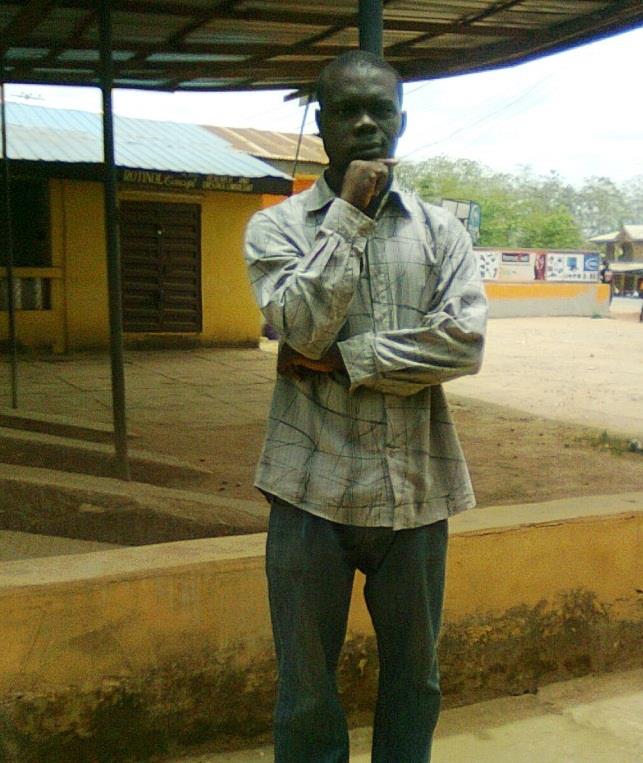
Song Title: Made in heaven
Genre: R N B
Verse 1
On a Friday night,
as I got the club,
I met this damsel
She was too real to be true
She was so fresh n green
That I couldn’t help grin
Her sexy face
Made me to dance
As I looked through her body,
I knew she was worthy
As I danced towards her,
I saaaaaaawwwww….that she was:
Chorus
Made in heaven
Made in Heaven (yea)
Made in Heaven
Verse 2
I told her ‘’you’re my meat that I want to eat’’
She smiled and said, ‘’You’re got some wits’’
‘’Alright’’ as I smiled passionately
I also said to her, ‘’though I’m meeting first time, you make comfortable’’
‘’Are you sure? How could this be possible?’’
I went on to say ‘’I simply want to know you better. My name is Peter.’’
‘’hmmm Peter!’’ She exclaimed, giving me a warm shoulder
‘’I’m for real…’’ those were assuring words
‘’I see your will’’ her words replied me with
I heralded, ‘’You were…
Chorus
Made in heaven
Made in Heaven (yea)
Made in Heaven’’
Verse 3
I asked her, ‘’what’s your name, damsel?’’
‘’Cristabel’’ she replied, looking seductively
Right there at the club,
I got a drink for both of us
We drank to the point we couldn’t drink no more
We got so high
We started talking dirty
And the rest became history
One thing led to the other
We were unclothed, holding each other
The morning bright
I looked at the body I admired
And I said to myself: ‘’This is…
Chorus
Made in heaven
Made in Heaven (yea)
Made in Heaven’’